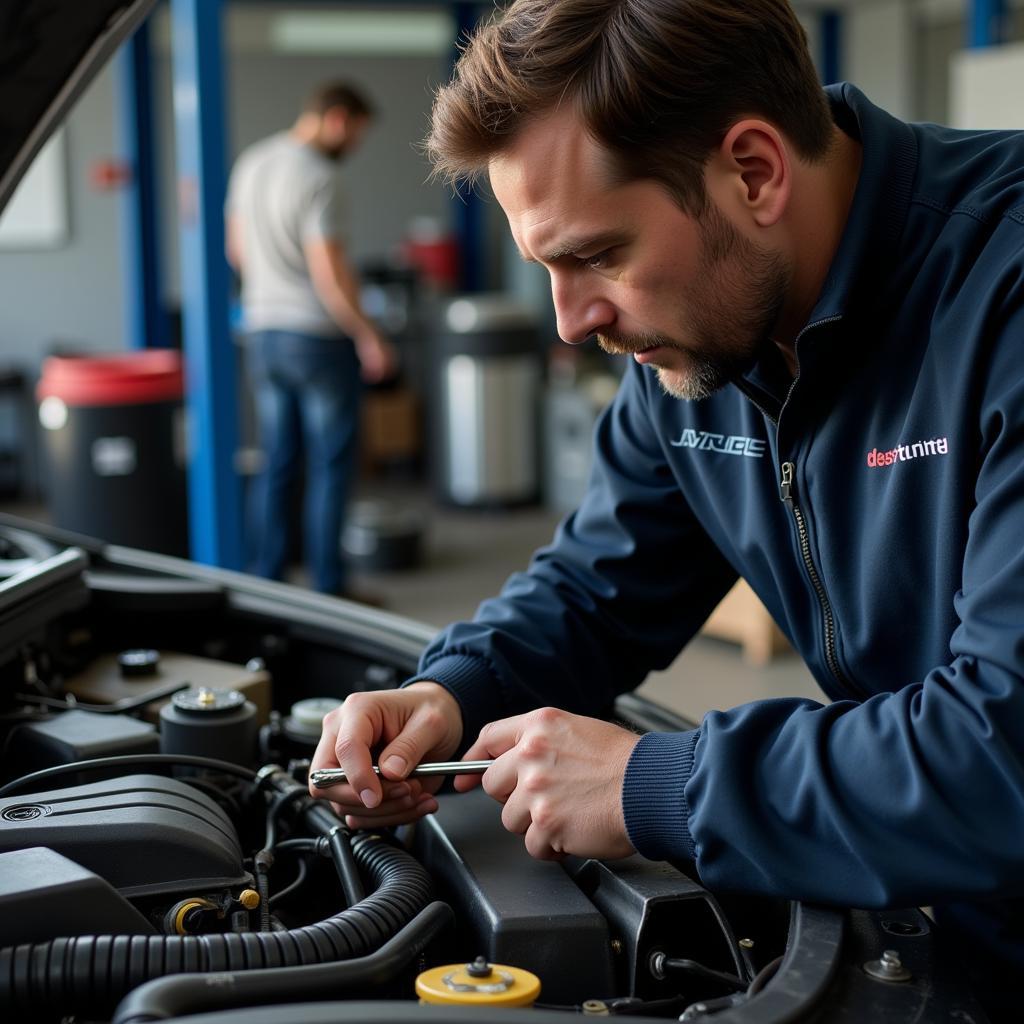How Often Should My Car Be Serviced?
Owning a car is fantastic, but keeping it running smoothly requires regular servicing. If you’ve ever wondered, “How Often Should My Car Be Serviced?”, you’re not alone. This is a common question with an answer that’s not always straightforward. Let’s dive into the factors influencing your car’s service intervals and provide clarity to keep your vehicle in top shape.
Traditional Service Intervals vs. Modern Recommendations
You might have heard the old adage of servicing your car every 3,000 miles or every 3 months. While this was a good rule of thumb in the past, modern vehicles are built differently. Advances in engine technology, oil quality, and manufacturing processes have extended service intervals significantly.
Most manufacturers now recommend service intervals between 5,000 to 7,500 miles, or even up to 10,000 miles for some models. However, it’s crucial to consult your owner’s manual for the manufacturer’s recommended service schedule for your specific car model.
Factors Affecting Your Car’s Service Needs
While the manufacturer’s guidelines provide a baseline, several factors can influence how often your car actually needs servicing:
- Driving Conditions: Frequent stop-and-go city driving, driving in extreme temperatures, or hauling heavy loads puts more strain on your car, requiring more frequent servicing.
- Driving Habits: Aggressive driving with rapid acceleration and hard braking can shorten the lifespan of your car’s components, necessitating more frequent checks.
- Oil Type: Using synthetic oil generally allows for longer intervals between oil changes compared to conventional oil.
- Vehicle Age: Older vehicles often require more frequent servicing as components wear down and require attention.
Understanding the Importance of Regular Car Service
Sticking to a regular car service schedule is about more than just changing your oil. It’s about proactive maintenance that can save you money and headaches in the long run. Here’s why:
- Preventative Maintenance: Regular checks can identify minor issues before they escalate into major (and costly) repairs.
- Safety: Servicing ensures all safety-critical components like brakes, tires, and lights are in optimal working order.
- Fuel Efficiency: A well-maintained engine runs more efficiently, improving your gas mileage and saving you money on fuel.
- Resale Value: A comprehensive service history can significantly boost your car’s resale value when it’s time to sell or trade it in.
 Mechanic Inspecting Car Engine
Mechanic Inspecting Car Engine
What Does a Typical Car Service Include?
A standard car service typically encompasses the following:
- Oil and Filter Change: Essential for engine lubrication and performance.
- Fluid Level Checks: Includes coolant, brake fluid, power steering fluid, and transmission fluid.
- Tire Pressure and Tread Check: Ensures optimal tire lifespan and safety.
- Brake Inspection: Checks brake pads, rotors, and fluid for safe stopping distances.
- Battery Test: Evaluates battery health and charging capacity.
- Air Filter Replacement: Keeps your engine clean and running efficiently.
- Visual Inspection: A thorough check for any visible signs of wear and tear.
car service information online
Recognizing When Your Car Needs Servicing
Besides adhering to the recommended service intervals, it’s vital to pay attention to your car. Be on the lookout for these warning signs:
- Unusual Noises: Squealing brakes, grinding gears, or knocking sounds from the engine could indicate problems.
- Warning Lights: Pay attention to any illuminated dashboard warning lights, like the check engine light.
- Fluid Leaks: Puddles of fluid under your car could signal a leak that needs immediate attention.
- Vibration or Pulling: If your car vibrates excessively or pulls to one side, it’s essential to get it checked.
- Decreased Performance: Noticeable drops in fuel efficiency, engine power, or acceleration could be signs of underlying issues.
Conclusion
“How often should my car be serviced?” is a question with a nuanced answer. While manufacturer guidelines are essential, your driving habits, vehicle age, and environmental conditions also play a role. Remember, regular car servicing is an investment in your vehicle’s longevity, safety, and performance. By being proactive and attentive to your car’s needs, you can enjoy miles of worry-free driving.
can i check a car’s service history
FAQs
1. Can I service my car myself?
While some basic maintenance tasks can be done at home, it’s generally recommended to have your car serviced by a qualified mechanic, especially for more complex procedures.
2. What’s the difference between a minor and major service?
A minor service typically includes an oil change, fluid top-ups, and basic inspections. A major service is more comprehensive and may involve replacing filters, spark plugs, and more detailed component checks.
3. Is it necessary to service my car at the dealership?
While dealerships have specialized knowledge of your car model, you can have your car serviced at a reputable independent mechanic as well.
4. How long does a car service usually take?
A minor service can take a few hours, while a major service might require a full day or more, depending on the work involved.
5. Can I negotiate the cost of car servicing?
It’s always a good idea to shop around for quotes from different mechanics. You can also ask about any discounts or specials they might be offering.
Need expert assistance with your car? Contact us on WhatsApp at +1(641)206-8880 or email us at [email protected]. Our dedicated customer support team is available 24/7 to address your queries.

